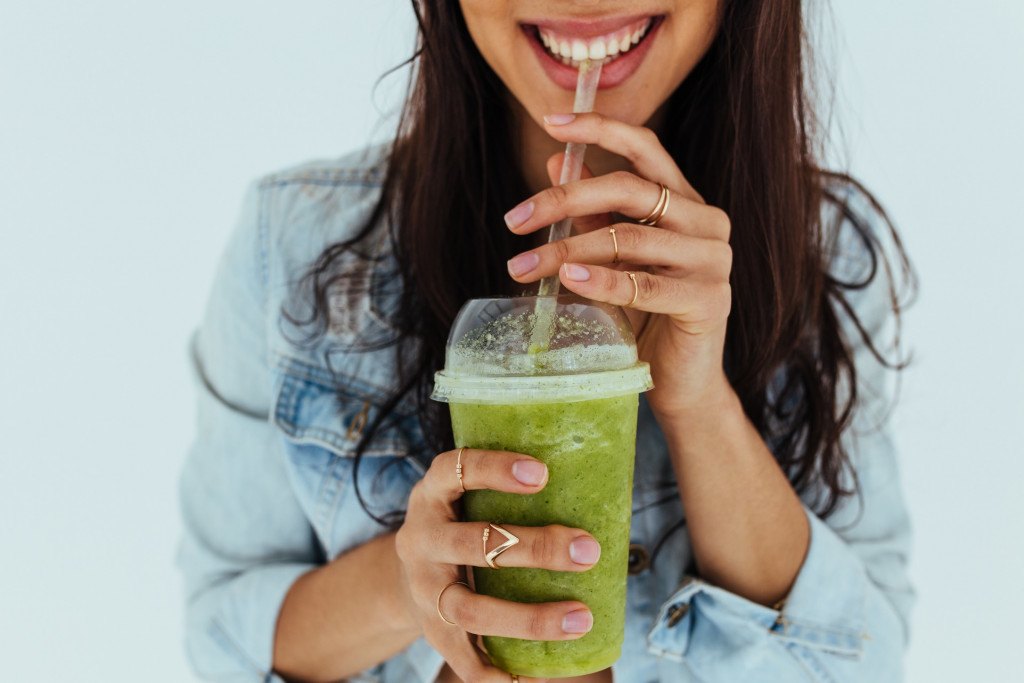The Healthy Foods You’ll See Everywhere in 2019, According to Nutritionists
We asked Philly nutritionists to predict healthy food trends for 2019. Here are their top picks.

Celery juice is one of the top healthy food trends nutritionists are predicting for 2019. Photograph by iStock/jacoblund
It’s been quite a year for healthy eating here in Philly. We’ve seen tons of new products, fresh cafes, and buzzy wellness trends appear on the scene in Philadelphia — with ingredients like CBD and açaí making a particularly big splash. Now, looking into 2019, we asked Philadelphia nutritionists to share the new healthy food trends they think we’ll start seeing everywhere.
Oat Milk
“If you’re a fellow La Colombe lover, you’ve probably heard of oat milk by now. With its rich flavor, creamy texture and ability to make the most epic non-dairy latte, I’m confident the oat milk craze will stay strong well into 2019. Oat milk is steel-cut or rolled oats that have been soaked in water, blended and then strained. The remaining ‘milk’ contains some (but not all, a bit of fiber and protein is lost) of the nutrients that oats yield. Luckily, because oats absorb water quite easily, when blended, a decent amount of food passes through when strained. This process results in a creamier consistency than your traditional almond or soy milk. Although it may have less protein than cow’s milk, as a non-dairy alternative, I can hop on board.” — Ivy Eliff at OnPoint Nutrition
Celery Juice
“Celery juice seems to be very popular right now, and I think it could be a good supplement to someone’s diet (ir actually has a good variety of vitamins/minerals). However, just like juicing in general, it shouldn’t be used to replace a meal.” — Liz McMahon, RDN, LDN at Liz McMahon Nutrition
CBD
“The demand for cannabidiol (CBD), a naturally occurring, non-psychoactive cannabinoid found within hemp, was in full force this year as it went from tinctures and pens to its slow incorporation into the food and beverage industry. Infused gummies, granola, chocolate bars, juices (shout out to Glo Easy from Philly’s Sip-N-Glo) and coffees, CBD’s purported therapeutic effectiveness for anxiety, insomnia, autoimmune diseases, inflammatory bowel disease and more will most likely carry a thriving presence into the food industry in 2019.” — Theresa Shank, RD, LDN at Philly Dietitian
Chickpeas
“Although chickpeas have been around forever, they continue to be repurposed in unique ways. Packed with protein and fiber, chickpeas are a great meal addition, snack or even dessert. Biena chickpea snacks are a great on-the-go option to replace chips or pretzels. I love the barbecue flavor! Chickpea cookie dough and chickpea “peanut butter” are products to definitely keep an eye out for on your next grocery run!” — Zoe Fienman, RD, LDN at OnPoint Nutrition
Fermented Foods
“I would think that more unique yet healthy foods from other cultures will start to come more into the mainstream market, with a focus in fermentation due to the increasing research on probiotics. Kind of how Korean kimchi is now at most supermarkets, I would expect more fermented foods from other cultures will make their way into US stores, such as injera (fermented flatbread popular in Ethiopia), natto (fermented soybeans from Japan), or poi (taro paste that is fermented, native to Hawaii).” — Kelly Strogen Bakes, MS, RD, LDN at Wayne Nutrition
Low-Sugar Foods
“Sugar is still pretty vilified. I’m seeing a lot of lower sugar products, ones made with alternative sweeteners, and even some no-calorie sugar substitutes that claim to work in baking. I am all for low sugar in packaged foods as I’m totally the girl who’s scanning labels and trying to save on that one gram of sugar. What I don’t love is the idea of packing traditionally sweet foods like baked goods with non-calorie sweeteners. It’s great that doing this can make these foods more accessible for some (i.e. someone with diabetes), but for the rest of us, I think this sends a mixed message. Cookies, cakes, ice cream, etc. are foods that are meant to be eaten in moderation for a reason. I worry that making them with no calorie sweeteners can lead to confused eating habits and paints a health halo that doesn’t really exist.” — Jennifer Friedman, RDN, LDN at Jenny Friedman Nutrition
Hemp Seeds
“Hemp seeds are a superfood that provide high levels of protein, essential fatty acids, and various minerals- making them an extremely nutrient dense food. The whole hemp seed even provides both soluble and insoluble fiber. You can enjoy them as is or eat them shelled in the form of hemp hearts.” — Gal Cohen, MS, RD at OnPoint Nutrition
Healthier Wine
“I believe that we will start to see a push for higher-quality alcohol, specifically wine, in 2019. Organic and sulfite-free wines are popping up everywhere. Consumers are becoming more in tune with what they are putting in their body, and alcohol is becoming a focus. Companies like Scout & Cellar are beginning to become more popular as we begin to push for higher-quality products. While I don’t think it will be the biggest trend, I do believe 2019 is the year we will start to see a push for quality ingredients in alcohol.” — Melissa Bailey, RD, LDN at The Nourished Fork
Protein-Packed Pastas
“I see more and more clients moving towards a plant based diet. Using a higher protein pasta is one way of making sure your veggie based meals are high in protein and super filling. Smaller brands like Banza (maker of chickpea pasta) got really hyped on instagram. I must admit, I have not gotten any of my three children to enjoy the chickpea pasta yet. The texture is just a bit different! I do think we will see more and more of these creative higher protein pastas on the grocery store shelves thought, because I see lots of really interested consumers! — Amy von Sydow Green, MD, MS, RD at Amy von Sydow Green


